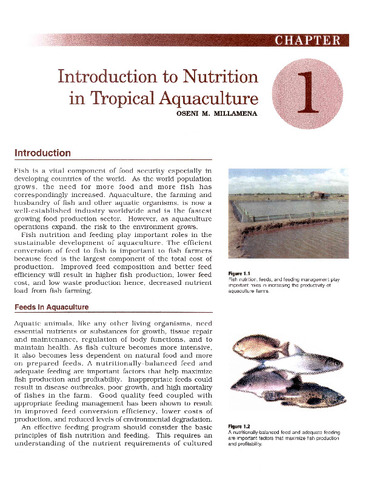Introduction to nutrition in tropical aquaculture
Share
abstrak
Fish is a vital component of food security especially in developing countries of the world. As the world population grows, the need for more food and more fish has correspondingly increased. Aquaculture, the farming and husbandry of fish and other aquatic organisms, is now a well-established industry worldwide and is the fastest growing food production sector. However, as aquaculture operations expand, the risk to the environment grows.
Fish nutrition and feeding play important roles in the sustainable development of aquaculture. The efficient conversion of feed to fish is important to fish farmers because feed is the largest component of the total cost of production. Improved feed composition and better feed efficiency will result in higher fish production, lower feed cost, and low waste production hence, decreased nutrient load from fish farming.
Suggested Citation
Millamena, O. M. (2002). Introduction to nutrition in tropical aquaculture. In O. M. Millamena, R. M. Coloso, & F. P. Pascual (Eds.), Nutrition in Tropical Aquaculture: Essentials of fish nutrition, feeds, and feeding of tropical aquatic species (pp. 1–5). Tigbauan, Iloilo, Philippines: SEAFDEC Aquaculture Department.
Contents
- Feeds in aquaculture
- Feeds and the environment
- Sustainable approaches to aquaculture
- Summary
- Suggested readings


